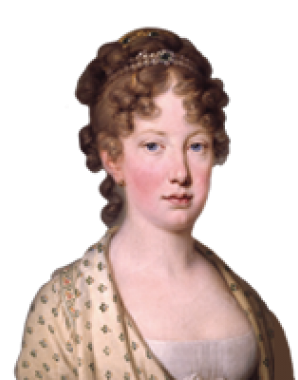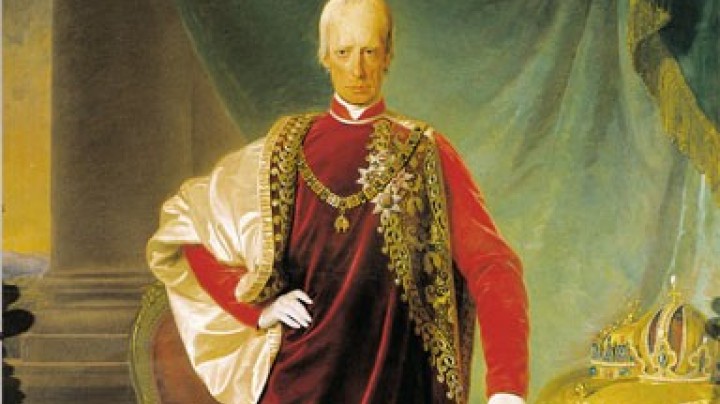A masterpiece of diplomacy
The imperial realm of Brazil needed international recognition of its independent status. Leopoldina convinced her father Emperor Franz I to form an alliance with it.
Leopoldina’s letter of petition to her father, Emperor Franz I of 6 April 1823.St Christoph (Rio de Janeiro), 6th April 1823.
Dearest Papa,
...the size of Brazil is of maximum interest for the powers of Europe, especially in respect of trade.
It is my duty to speak on behalf of the noble Brazilian people.
Now I have nothing more to wish for, but that you, most worthy Father, step forward as our true friend and ally. As to myself, dearest Father, you may be sure that I shall always remain wholeheartedly Brazilian, for this is my duty as a wife, a mother, and one who is thankful to a worthy people, who, when we were abandoned by all the powerful nations, were willing to support us, and did not shrink from the greatest sacrifices and perils.
I kiss your hands again and again and remain always, with the deepest filial love and most profound respect, dearest Papa, your obedient daughter Leopoldine.
Gaining international recognition of Brazil’s independence was imperative. Leopoldina knew that the motherland Portugal must be the first to acknowledge Brazil’s independent status, and that other European states would then follow suit. Furthermore, as a true daughter of the House of Habsburg, she knew that when the remaining European powers came to decide what political direction to follow, the behaviour of her father Emperor Franz I would be decisive.
She wrote letters and gave dispatches to the diplomats, which they were charged to deliver personally – but for more than two years her efforts met with no success. Accordingly, on 6 April 1823 Leopoldina addressed a lengthy petition to her father, Emperor Franz I, culminating in the statement that she considered herself to be ‘wholeheartedly Brazilian’ in order to emphasize her irrevocable commitment to this cause. Even this missive initially brought no reaction from Vienna. Leopoldina wrote to her father-in-law, Dom João VI, in Lisbon, urging him to ‘be an angel of peace and ratify the constitution and in so doing show the whole world that you are the most generous of fathers’.
Progress in this diplomatically sensitive matter was made when England started demanding payments from Portugal and Portugal therefore sought out an alliance with Austria. Finally on Leopoldina’s name-day, 15 November 1825, three years after the declaration of independence and one year before her death, the treaty recognizing Brazilian independence was signed by the Portuguese motherland. In a masterpiece of diplomacy, through being patient and urging her case in appropriate measure, speaking and corresponding with the right person at the right time, Leopoldina had reached her goal: the independent Empire of Brazil was accorded international recognition.















